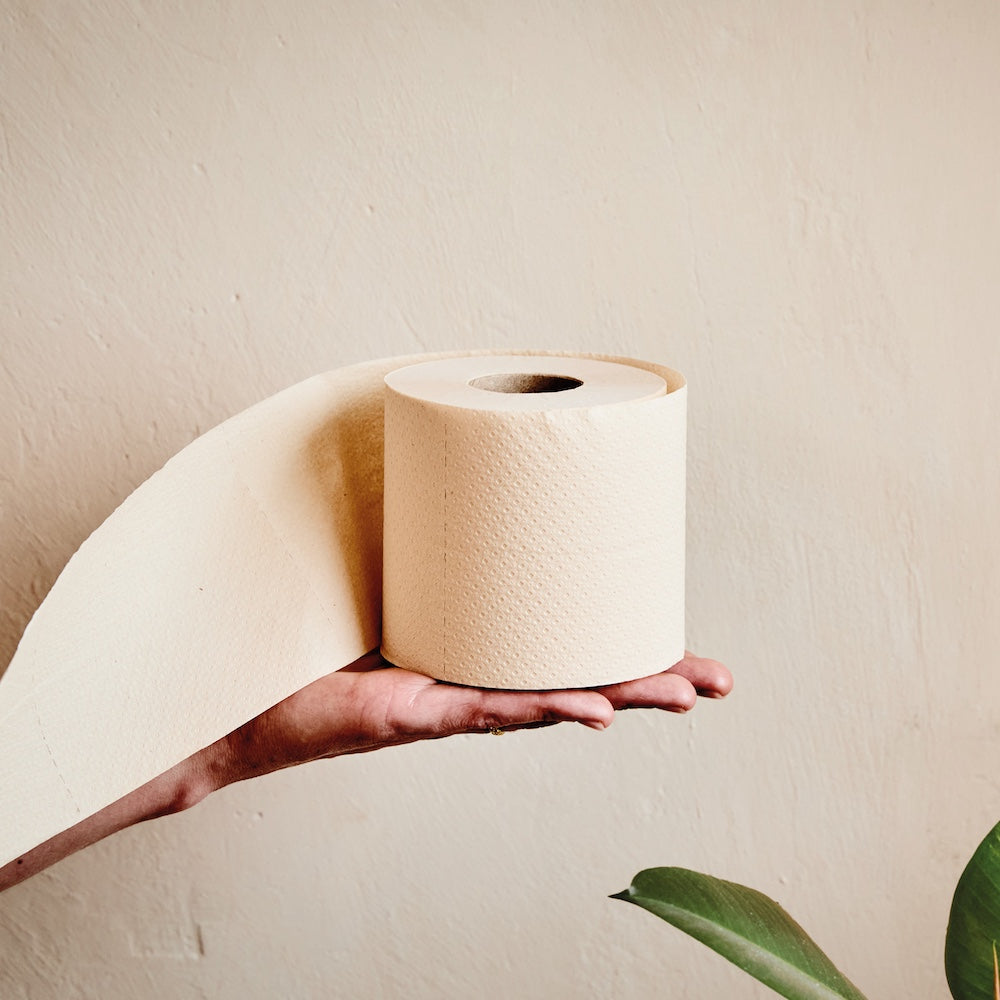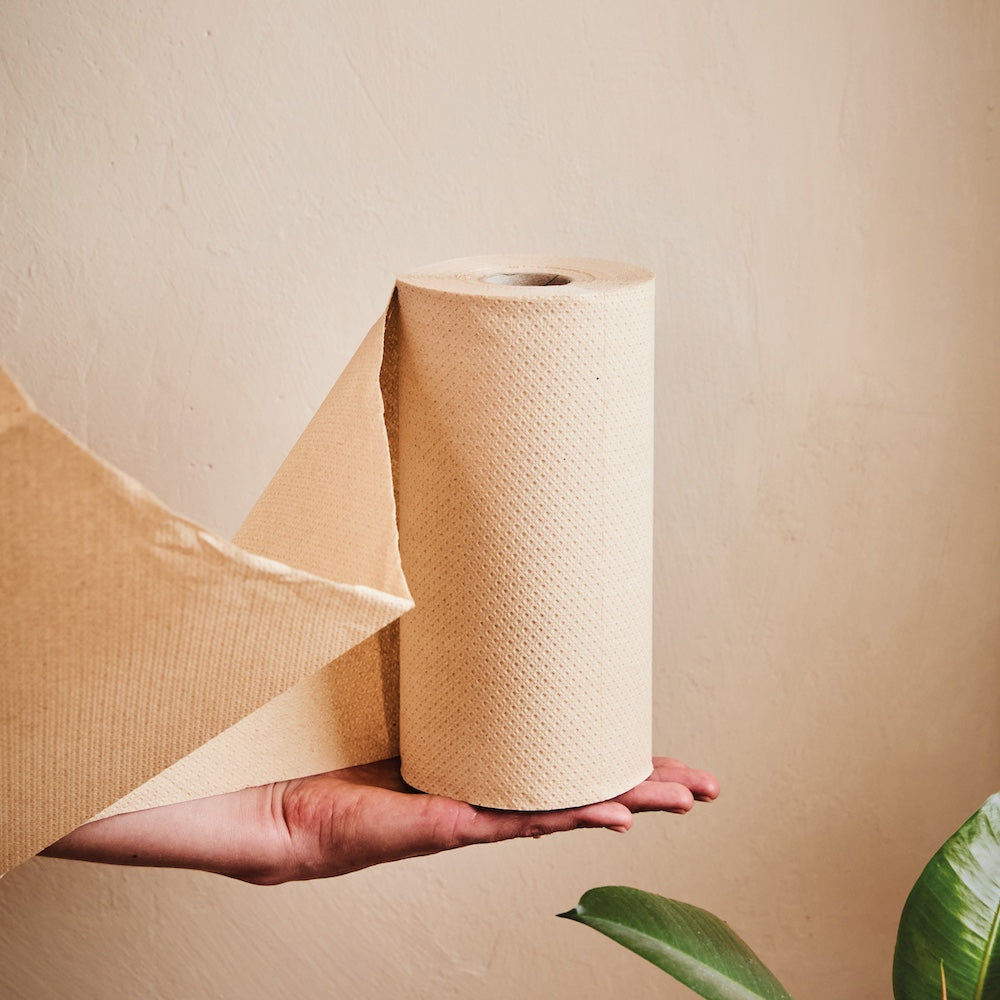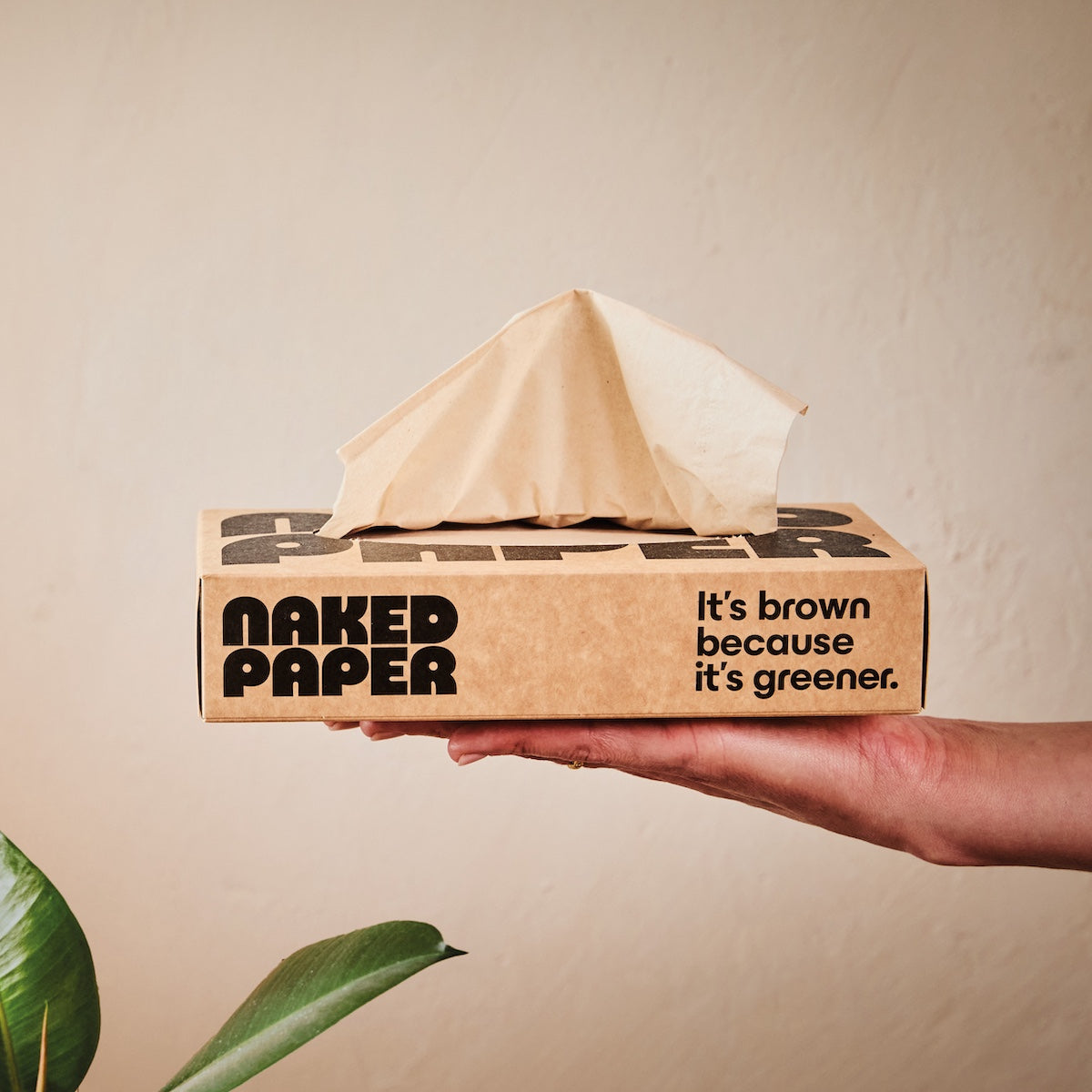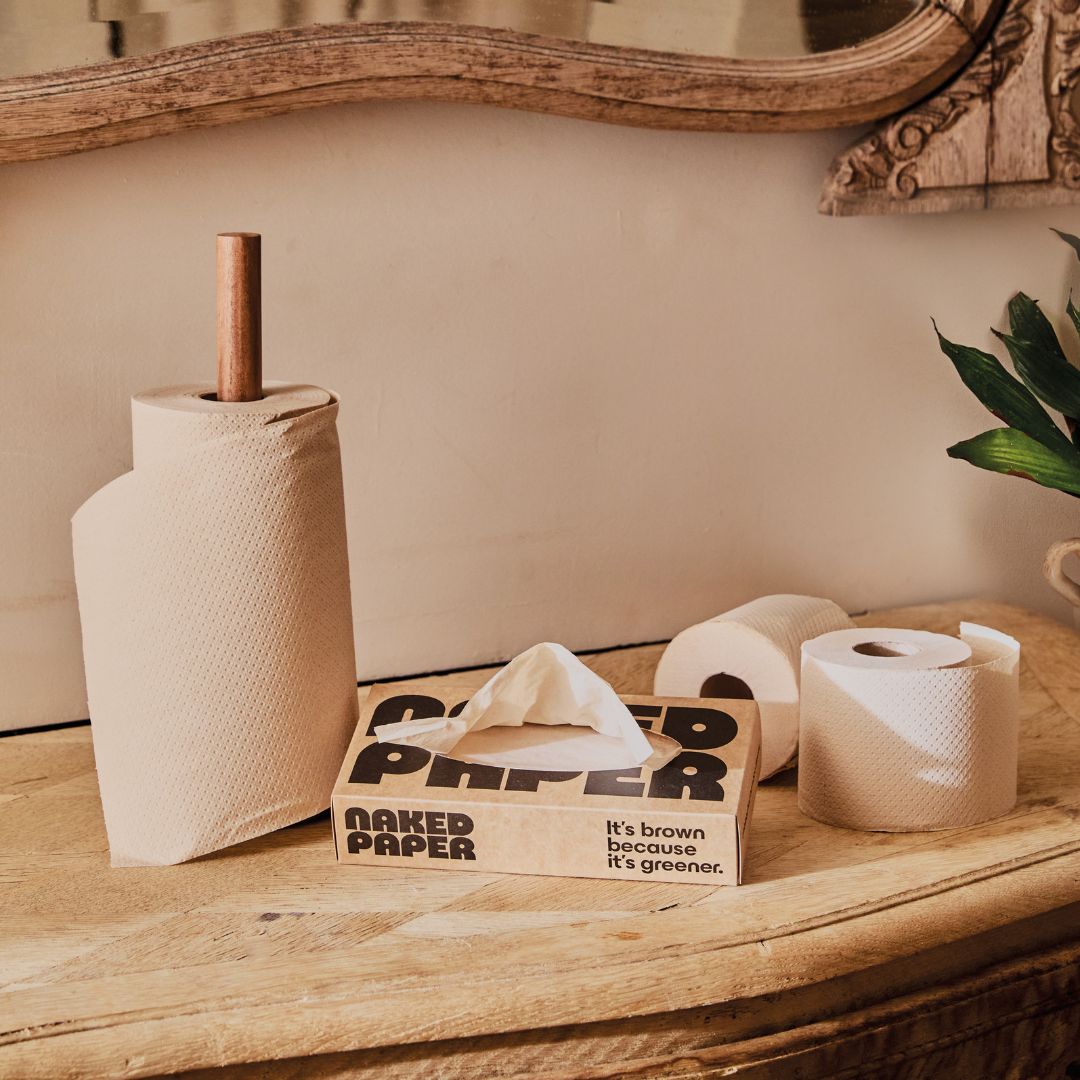What is BPA-free toilet paper?

Recycled toilet paper is an everyday staple in eco-conscious homes up and down the country. It just makes sense; take paper waste that nobody wants and give it a new life as soft, simple loo rolls.
But not all recycled toilet papers are made the same way, or with the same materials. If you're someone who's opting for recycled as your everyday roll, it’s worth looking a bit more closely at what exactly it's recycled from.
We’ve covered PFAS or “forever chemicals” on our blog before, and we’re always delighted to confirm that our Naked Paper bamboo and recycled toilet rolls are certified PFAS-free. You can see our test documents here.
But when it comes to recycled rolls in particular, there’s another concerning chemical worth knowing about; bisephanol A, also known as BPA.
It’s bad news for the environment, bad news for our bodies, and there's no BPA in Naked Paper recycled toilet paper. But what exactly is BPA?

What is BPA?
BPA is a hormone-disrupting chemical that was first developed in 1891. It attracted interest among medical researchers in the 1930s when they discovered it could be used as an artificial replacement for the hormone estrogen.
Unfortunately, its hormonal properties were overlooked when, in the 1950s, manufacturers making everyday plastic products found out that adding BPA made them stronger and more heat resistant.
It was a winning combination for food packaging. Since the 1950s BPA has been used widely for takeaway boxes, plastic bottles, and even the insides of tins of fruit and vegetables.
But in recent years alarm bells have started ringing. Studies have linked BPA exposure to a range of health concerns, including fertility problems, developmental issues in children, and increased risks of heart disease and diabetes.
As awareness of the harmful effects of BPA grows, many countries have moved to ban BPA in food-contact products. Unfortunately, that’s not the only place you’ll find it.

How BPA ends up in toilet paper
In 2011, a study by the American Chemical Society found that BPA could be detected at significant levels in a wide range of toilet paper and napkins, specifically recycled toilet paper and napkins. How was it getting in there?
It’s all down to what’s being recycled. The strengthening, heat-resistant properties of BPA make it a useful ingredient for thermal paper, which is used to make till receipts. If you’ve ever been handed a receipt in a shop or supermarket, you’ve handled thermal paper.
In 2020 the EU decided that the amount of BPA in till receipts represented an unacceptable risk to shop workers. They banned BPA in the production of till receipts, and the UK swiftly followed suit.
But here's where things get complicated, because it’s not just shop workers who might come into regular contact with BPA in paper form. Because it’s used so regularly in shops all over the world, thermal paper often ends up in the recycling bin. And when it's not filtered out properly, BPA can sneak into recycled paper products, including toilet paper.
But BPA isn’t used in receipts in the UK any more, so does that mean there’s none of it in UK recycled toilet paper?
Not necessarily. A lot of toilet paper sold in the UK is labelled as "made in the UK". This can mean lots of different things; but it can mean that big “parent rolls” of ready-made tissue are imported from abroad, before being chopped down and turned into smaller rolls in the UK.
Even when the actual tissue is made in the UK, the raw materials used – the big pile of waste paper that gets pulped and turned into tissue – often starts life outside the country. And because BPA can also be found in leaflets, magazines, and envelopes, there’s plenty of opportunity for it to slip into the mix.

How we make toilet paper without BPA
At Naked Paper, we know exactly what goes into our recycled toilet paper. Our recycled toilet rolls are made from scratch by our fantastic family-run tissue factory in Spain, and we’re really specific about the kind of paper and card we use to make them.
We only use old packaging materials; brown kraft paper and cardboard collected from businesses in the area around the factory. This is carefully sorted at our state-of-the-art recycling centre before being pulped, cleaned, and turned into soft brown toilet paper.
There’s no way for BPA to sneak in.
We’ve also tested our toilet paper, just to be sure. Independent laboratory analysis confirms that Naked Paper recycled toilet rolls are BPA-free, the same as our bamboo toilet rolls. You can see the results of this testing on our green credentials page, right next to our PFAS-free results.

Conclusion: Recycled toilet paper with no BPA
If you’re choosing recycled toilet paper, you’re already making a good choice for the planet. But if you want to make the best choice for your health, it’s good to know what exactly is being recycled, and where.
The health implications of BPA were ignored for far too long. We won’t make the same mistake at Naked Paper. Our recycled toilet rolls are made carefully and cleanly in our wonderful factory, without harsh chemicals and bleach, with an eye on simplicity and cutting waste.
No plastic, no forever chemicals, and definitely no BPA.
Want to try toilet paper that’s recycled from BPA-free materials?
Recent blog posts
-

2025 in toilet paper (and tissues, and kitchen roll...)
With bleach free toilet paper, kitchen rolls, and tissues sold in packs to suit the busiest households, we’re all about stocking up. And as 2025 draws to a close, it’s the perfect time to take stock as well; to pause a...
-

Discounted toilet paper when you refer a friend
Word of mouth has always been an important part of our story. Our bleach-free community is full of people who first tried Naked Paper toilet rolls, kitchen rolls, or tissues at work, or the home of someone they know. Without that...
-

Why we say "climate footprint" not "carbon footprint"
Our climate is changing as a result of the way people live, travel, and shop. And while everyone has a role to play in the transition to more sustainable ways of living, the bulk of the responsibility has to lie...







